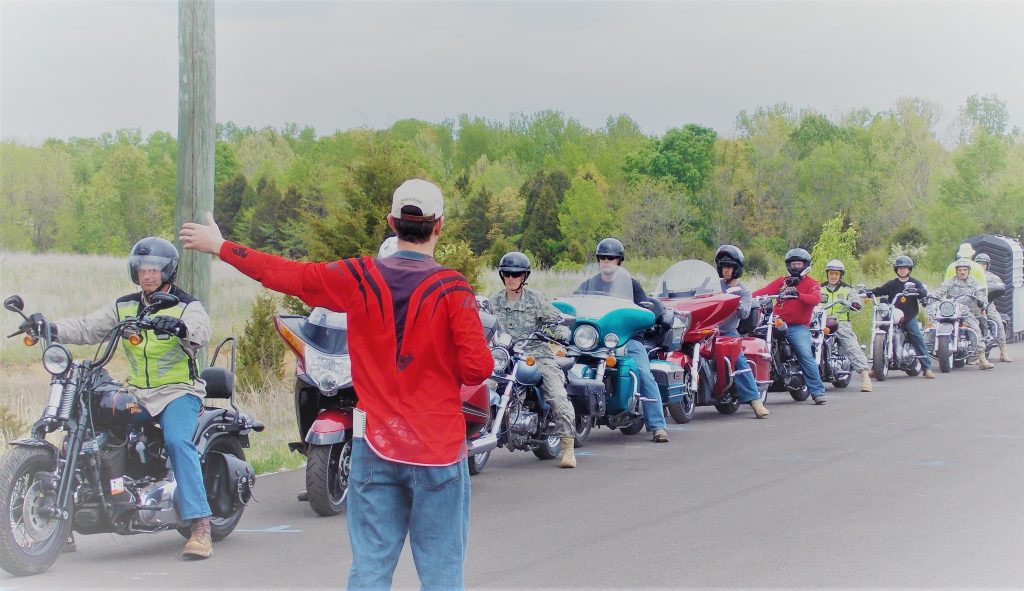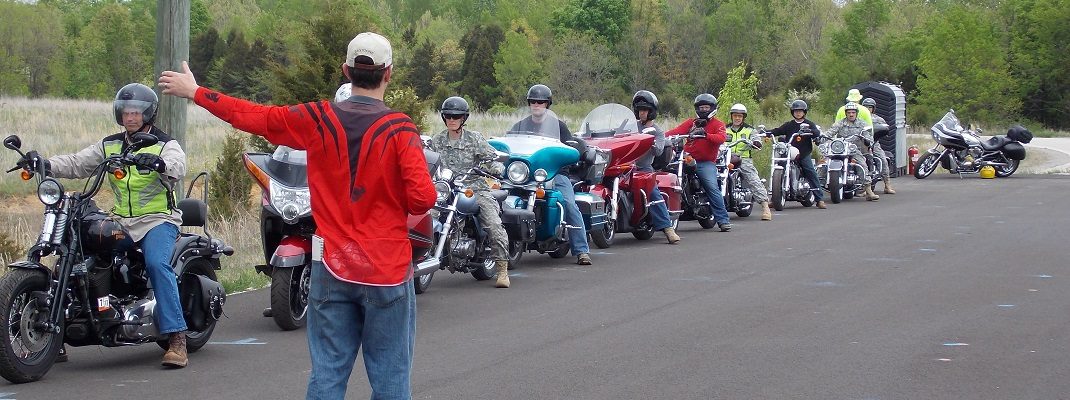By Dr. Donald L. Green, 27 June 2023
Becoming a motorcycle RiderCoach/Instructor for a Rider Education Program is an exciting opportunity to make an impactful difference in the motorcycling community and promote motorcyclist survivability. To excel in the role, specific characteristics and abilities are essential. In this article, we will explore some characteristics required to become a successful RiderCoach/Instructor and emphasize a few of the necessary abilities important to inspire and guide potential candidates.

To become a RiderCoach, certain competencies are crucial for effectively teaching and coaching riders. These include:
- Riding Skills: A strong foundation of riding skills is fundamental. Demonstrating advanced proficiency in various riding techniques, including cornering, braking, and maneuvering, enables you to model safe and effective riding practices at the most basic level. It is essential to have advanced proficiency, but most courses and programs focus primarily on the fundamentals necessary to manipulate controls effectively and use good judgment in on-road decision-making. Novice Riders only need advanced training once the basics are fully developed.
- Teaching Skills: As a RiderCoach/instructor, you must possess the ability to convey the appropriate information clearly and effectively. This involves organizing and delivering lessons, facilitating discussions, and providing timely and constructive feedback to riders. RiderCoaches/Instructors are not the end-all-be-all of the platform instruction; the best instructors allow students to take ownership of the material and opportunities within a well-developed curriculum.
- Coaching Skills: Coaching goes beyond teaching. It involves understanding individual learning styles and group dynamics or adapting instructional methods. Motivating students and future riders to improve their skills and develop a safety-conscious mindset requires a depth and breadth of knowledge to understand the material, human behavior, self-awareness, machine function, and the physiology of motor skills.
- Communication Skills: Strong communication skills are essential for establishing a rapport with riders, actively listening to their concerns, and conveying information in a way that is easily understandable and relatable. This includes using the appropriate terminology which is repeatable throughout the curriculum. Sometimes this requires a simple translation of information to get everyone referring to common terms. Other times its being able to bridge language barriers in creative ways, remembering communication can be as much non-verbal as verbal.

Several characteristics contribute to being an exceptional RiderCoach. These include:
- Motivation: Having an “Intrinsic Motivation” to dedicate time and effort toward learning about being a RiderCoach/Instructor is essential. The motivation aspect is tied to being a life-long learner, and the ability to be self-reflective enough to make continual improvements about learning, growing, and interacting with others. The journey is never ending and receiving a certificate is only a license to learn more.
- Patience and Empathy: Patience is essential when working with riders at different skill levels. Empathy allows you to understand their challenges and provide support and encouragement throughout the learning process.
- Professionalism: Demonstrating professionalism by maintaining a positive attitude, being punctual and well-prepared, and displaying a commitment to personal and rider safety creates a strong impression and fosters trust among riders and peers.
- Flexibility: Adaptability is essential when working with diverse groups of riders. Being flexible and responsive to their needs and learning styles ensures you can effectively cater to individual and group requirements.
- Leadership: A RiderCoach is a leader in promoting safe riding practices and influencing the behavior and attitudes of riders. Demonstrating leadership skills by setting a positive example and guiding riders to make informed decisions enhances your effectiveness as a RiderCoach—RiderCoaches model for students on and off the range. Sincerity and authenticity go a long way to creating a model worthy of emulation, and students know a RiderCoaches commitment to safety.
Activities: RiderCoaches engage in various activities to facilitate learning and promote rider safety. These activities include:
- Classroom Instruction: Delivering engaging and informative classroom sessions on motorcycle control, risk management, and traffic awareness forms a significant part of a RiderCoach’s responsibilities. Even when using remote learning, “Online instruction” topics should seep into or be emphasized during on-range activities. Engagement is the same despite the method or location.
- Range Exercises: Conducting practical range exercises, such as slow-speed maneuvers and emergency braking drills, allows riders to develop and refine their riding skills in a controlled environment. Finesse is much more important than using speed and power to mask over shortcomings. Meeting objectives are essential and require the keen observation skills of the RiderCoach.
- Rider Assessments: Assessing riders’ progress through observations and evaluations helps identify areas for improvement and allows the tailoring of coaching for their specific needs. Without good RiderCoach knowledge and judgment, safety during and after the course becomes an issue.
- Mentorship: Providing mentorship to riders and other RiderCoaches by offering guidance, answering questions, and sharing experiences enhances the learning journey and fosters a sense of trust and support. Students and peers alike are looking for meaningful information without meaningless detail to enhance growth and a continuing relationship.
Abilities: To excel as a RiderCoach, certain abilities are essential:
- Observation Skills: Developing keen observation skills enables the RiderCoach to identify strengths and weaknesses in riders’ techniques and behaviors. This allows the targeted feedback and tailoring of the most beneficial instruction to the student.
- Critical Thinking: Applying critical thinking skills in various scenarios helps RiderCoaches analyze risks, anticipate potential hazards, and develop strategies to promote safe decision-making preventing on-course incidents. One incident is too many.
- Adaptability: Being able to adapt teaching methods and approaches to suit different learners and skill levels ensures effective communication and engagement with riders.
- Continuous Learning: Embracing a mindset of life-long learning, staying updated on the latest industry practices, and participating in professional development activities contribute to the growth as a RiderCoach.
Becoming a RiderCoach/instructor requires an infinite combination of competencies, characteristics, activities, and abilities. A dedicated rider can excel in this role by developing vigorous riding and teaching skills, embodying essential features, engaging in various instructional activities, and cultivating necessary abilities.
As a RiderCoach/Instructor, the passion for rider safety and commitment to continuous improvement will inspire and guide students and other riders to become responsible motorcyclists. Embrace the opportunity to positively impact and share valuable expertise in the motorcycle community as a valued RiderCoach/Instructor for a Rider Education Program.


